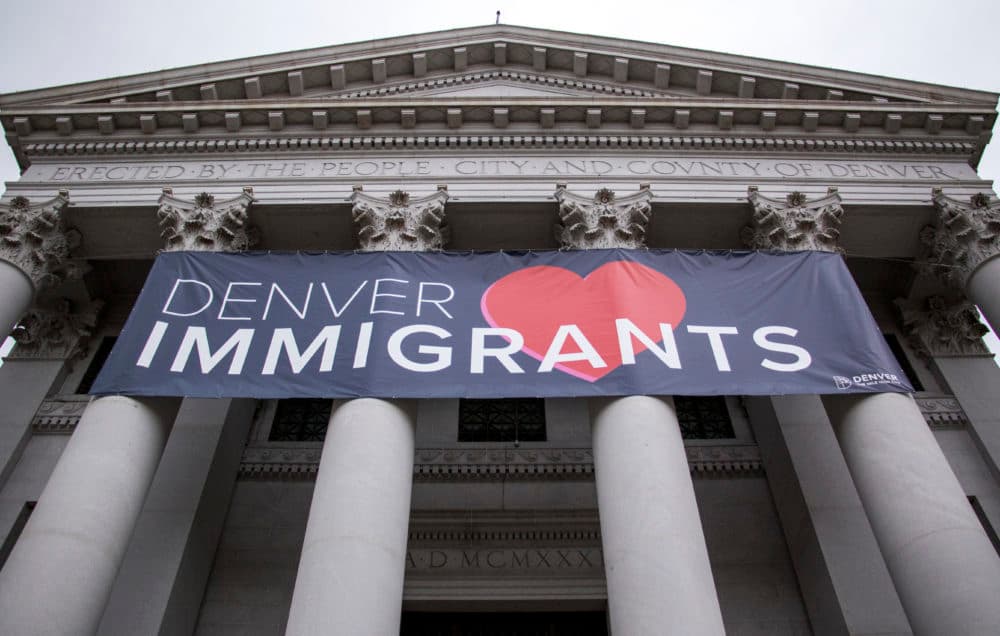A legal fund providing aid for immigrants got a big boost this week that organizers believe will significantly increase the number of people it can help.
Denver City Council on Monday approved adding $300,000 for the Denver Immigrant Legal Services Fund, which was established to give money to local nonprofits helping low-income undocumented immigrants facing deportations. Money it gives out can also be used to pay for naturalization proceedings and DACA applications.
The fund has helped 417 Denver residents between September 2018 to August 2020, according to information provided by the city. The new money will help an additional 540 people get direct immigration representation by 2022, according to the city.
The council's decision adds money to the city's existing agreement with The Denver Foundation, which oversees the fund and is responsible for distributing the money to organizations providing legal aid. The money brought the agreement's total to $500,000.
While the fund accepts donations, the city's money is its primary funding source. For context, after being formally established in 2018, the fund has given more than $755,000 in grants to local nonprofits. It was established after Mayor Michael Hancock signed an executive order in 2017 pledging to help immigrants and refugees in the city by creating a fund. The city partnered with The Denver Foundation the following year to begin providing money.
The Denver Foundation President and CEO Javier Alberto Soto said it's important to provide funding for people to make sure they have proper legal representation, a tenant he described as a founding principle for the country. He said people who are immigrants who must go through the legal system may face obstacles like language barriers and be unfamiliar with U.S. proceedings.
Nonprofits supported by The Denver Immigrant Legal Services Fund include the Justice and Mercy Legal Aid Clinic, Lutheran Family Services, the Rocky Mountain Immigrant Advocacy Network and the University of Denver.
"These folks do incredible work on, frankly, shoestring budgets. That's what they do all the time," Soto said.
Getting proper representation can make a huge difference for someone going through proceedings. Sarah Plastino, senior staff attorney at the Rocky Mountain Immigrant Advocacy Network, said people in immigration proceedings are 10 times more likely to win their case if they have an attorney. She said it was the single most determining factor in the outcome of a case.
Attorney Shaleen Morales also works at the Rocky Mountain Immigrant Advocacy Network and has represented people in court. Her position is directly funded by the Denver Immigrant Legal Services Fund. She noted the people who benefit from the program are among the most vulnerable; the fund stipulates people who can benefit from its services must fall 200 percent below the federal poverty level.
Morales said these folks are often breadwinners whose detention immediately impacts a family's ability to provide.
"The system is completely stacked against someone who is detained, and their families as well," Morales said.
During Monday's council meeting, Councilmember Jamie Torres took a moment to commend the fund.
"It is needed both for defense for immigrant communities but also for affirmative relief, so folks who are applying for DACA, who are applying for citizenship," Torres said. "As of a few years ago, we had over 30,000 residents who were eligible for citizenship, and (for) many of them, cost and process is a huge barrier."
Torres plans on testifying before the state legislature next week to support creating a similar statewide bill. The bill was introduced earlier this month by three metro-area legislators who are Democrats. Westword reported the Colorado Fiscal Institute released a report in February suggesting a statewide fund could benefit the state economy.
Funds like the one Denver has are rare. There are just 43 publicly funded local and state deportation defense programs across the country, according to the Vera Institute of Justice, a nonprofit organization focusing on criminal justice.













